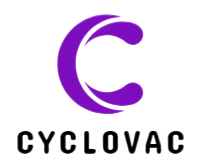Scientific congresses and medical conference management play a crucial role in facilitating knowledge exchange and collaboration among professionals in the scientific and medical communities. These events bring together experts, researchers, and practitioners from various fields to share their latest findings, discuss advancements in their respective disciplines, and foster collaborations that drive innovation and progress. Effective management of these conferences is essential to ensuring their success and maximizing the benefits they offer.
One of the primary objectives of scientific congresses and medical conferences is to promote the dissemination of knowledge. These events provide a platform for researchers to present their work through oral presentations, poster sessions, and workshops. By sharing their findings, researchers contribute to the collective knowledge base, enabling others in the field to build upon their work and advance the scientific and medical frontiers. Attendees also have the opportunity to engage in discussions, ask questions, and provide feedback, promoting a culture of constructive criticism and intellectual growth.
In addition to knowledge dissemination, scientific congresses and medical conferences facilitate networking and collaboration. These events attract professionals from diverse backgrounds and geographical locations, creating a unique environment for interdisciplinary interactions. Attendees can connect with peers, build professional relationships, and explore potential collaborations that can lead to groundbreaking research, innovative projects, and new discoveries. These networking opportunities foster a sense of community and camaraderie, nurturing a supportive environment for scientific and medical advancement.
The management of scientific congresses and medical conferences involves meticulous planning and execution. Conference organizers have the responsibility of curating a program that is diverse, engaging, and relevant to the attendees. They must identify keynote speakers, invite renowned experts, and coordinate presentations and workshops to ensure a well-rounded experience for participants. Additionally, logistics such as venue selection, registration processes, accommodation arrangements, and audiovisual support need to be carefully managed to create a seamless and enjoyable conference experience.
Technology plays a crucial role in the management of scientific congresses and medical conferences. Online platforms and conference management software have revolutionized the way these events are organized and conducted. Abstract submission and review processes, registration and payment systems, and scheduling and session management can be streamlined through digital tools. Virtual conference platforms have also gained prominence, allowing for remote participation and ensuring accessibility for individuals who are unable to attend in person. Leveraging technology effectively can enhance the overall conference experience and broaden the reach of knowledge exchange and collaboration.
Moreover, scientific congresses and medical conferences provide opportunities for professional development and continuing education. Many conferences offer workshops, symposiums, and educational sessions that cover the latest trends, techniques, and best practices in various fields. Attendees can update their knowledge, acquire new skills, and stay abreast of emerging research and technologies. Continuing education credits and certifications are often awarded for active participation, further incentivizing professionals to engage with these events and invest in their ongoing learning and growth.




